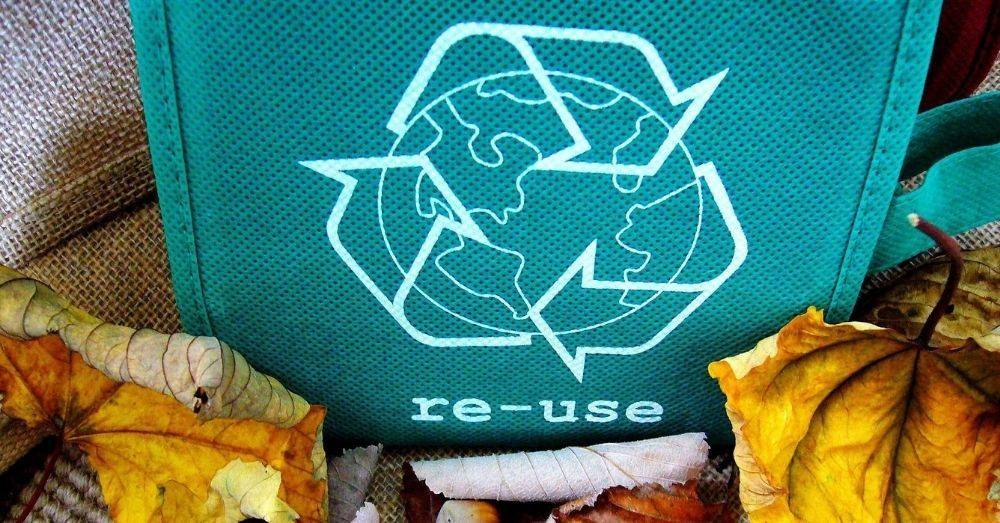6 American companies defining responsible manufacturing
Socially responsible manufacturing is fast becoming the standard. Check out our list of American companies paving the way by merging adopting ethical practices.
Team Katana

The weight of the world in terms of social responsibility cannot just be on us as consumers, but as small manufacturers too. And doing our bit to be conscious of our processes and material sourcing will not only have a positive effect on the planet but also encourage others around to do the same.
In a perfect world, every company would do the right thing simply because it was right—but increasingly, socially responsible manufacturing also makes good business sense.
Studies indicate that more American consumers want responsibly produced goods and that they want to work for socially responsible companies. The businesses that will reap the true benefits of this trend are the ones who build sustainability processes that show a commitment to the cause.
And despite trends for manufacturers often leading the way on this, it’s absolutely critical to see how the big players are adopting responsible practices. Because in some ways, that’s how we know that this mindset is going to stick.
These six American manufacturers have gone above and beyond to show that their dedication to sustainability is real and lasting. Each have their own tailored approach and there’s a lot makers can learn from their approaches if not from the methods themselves.
They’re all betting that implementing sustainability practices will help to drive innovation that will continue to make them industry leaders.
And in many ways, it looks like their bets are paying off.
1. Milliken
Plastics manufacturing, despite its critical importance to global business, is often not an industry associated with sustainability. However, there’s great potential for sustainability in the millions of plastic enclosuresand other common plastic components that power our world.
Milliken is one manufacturer working hard to see the green side. Their environmental policy, adopted all the way back in 1990, seeks not just the reduction but the total elimination of waste from their manufacturing processes.
Thanks to their longstanding commitment, Milliken has made remarkable progress toward their sustainability goals. The company diverts 99 percent of its waste out of the landfill waste stream into avenues for reuse or recycling. Their programs have proven so successful that in 2007, the sustainability experts at Leonardo Academy deemed them not just carbon-neutral but carbon-negative.
2. HP

Sadly not all that glitters is gold. A lot of the sources for materials manufacturers often come from ethically dubious places. Of course we can’t be perfect, but delving into the sources of your materials will be greatly appreciated by those worse affected as well as your customers too.
For years, the use of conflict minerals in electronics manufacturing has been a controversial topic. The minerals commonly referred to as “3TG”—tantalum, tin, tungsten and gold—are widely used in the industry but are also often mined in destabilized countries where armed militias use mining profits to finance human rights abuses.
Not satisfied with waiting for the rest of the industry to change its practices, consumer electronics giant HP has taken a proactive approach to creating an ethical and sustainable supply chain for the minerals used in their products.
HP reported that in 2017, 91 percent of the smelting operations in its supply chain had taken steps to ensure ethical sourcing of their materials. It’s a “yes, and” approach that encourages their suppliers to take the approach that works for them.
Increased supply chain vetting, recycling conflict minerals from scrap sources and sourcing minerals from outside conflict regions are all options for their suppliers, allowing them to operate with a combination of flexibility and conscientiousness.
3. Bombardier
Mass transit solutions are a critical part of building a sustainable world, so it stands to reason that the companies providing those solutions should have sustainable practices as well. The aerospace and transportation manufacturer Bombardier has taken that challenge to heart.
Bombardier is a great example of how innovation can drive sustainability, and vice versa, in a loop of positive feedback that can create great results for everyone. Their commitment to innovative green products includes a new jet designed using eco-conscious procedures at every step and train cars built from 95 percent recyclable materials. They’ve also reduced their power consumption and carbon emissions every year since 2014.
4. Cisco
Cisco, one of the world’s biggest manufacturers of networking hardware, has a truly impressive commitment to sustainability. Comprehensive is the word here—the company is focused not just on environmental outcomes, but also on progressive labor practices and philanthropy.
Cisco has long been a leader in cutting-edge environmental work. It’s achieved an absolute reduction of 45 percent in its greenhouse gas emissions since 2007, an incredible achievement by any metric. It’s also well ahead of its 2025 target for emission reductions—the company said it’s already eliminated 910,000 metric tons of carbon emissions from its supply chain.
Their philanthropic work includes impressive initiatives like the Networking Academy, a program that trains students around the world for today’s (and tomorrow’s) tech jobs in partnership with both public and private entities. They’re also a notable participant in disaster relief efforts, with a special Tactical Operations team that deploys key networking devices in areas hit hard by natural disasters.
5. McCormick

Considering that even the big players are making the effort to recycle and use salvaged goods, there’s no reason that makers can’t do the same. Starting with just recycling in your workshop is already going to make a positive difference. If anything it fosters a positive and environmentally conscious mindset.
The CPG industry has sometimes struggled with sustainability due to the consumable nature of its products. McCormick is tackling the challenge head-on by setting aggressive targets for reducing their environmental impacts including 100 percent recycled plastics, an 80 percent reduction in solid waste and a 20 percent reduction in greenhouse gases—all by 2025.
McCormick has also made an impressive commitment to social responsibility in its operations. The company boasts a robust program that seeks to integrate businesses owned by people of color, LGBT people, veterans and women into their supply chain, as well as numerous corporate philanthropy initiatives. They’re now reaping the rewards of their efforts—they were awarded the top spot in the food industry in Corporate Knights’ 2018 sustainability rankings.
6. Merck
As one of the world’s largest science and biotechnology companies, Merck is in a position of both great power and great responsibility—and, encouragingly, they seem determined to leverage their position to its fullest power to do good.
Their top-to-bottom approach includes a commitment to a renewable energy, with a goal of buying 50 percent of its global energy from renewable sources by 2025 and 100 percent by 2040. And it’s hardly a new goal for them: Merck has been recognized for 13 years running by the EPA’s Energy Star program for their dedication to clean energy.
Merck combines environmental initiatives with a robust commitment to philanthropic giving. They’vesupported highly effective initiatives to combat river blindness in Mexico and Hepatitis C in India, allowing them to simultaneously expand into new markets.
That combination of business acumen and corporate responsibility is a perfect example of what can be accomplished through the cooperation of public and private power to create a more connected and sustainable world.
Just about every small manufacturer has a thing or two that they could learn from these companies, whether it’s advice on what software to use, growth tips, business management, or best practices for responsible manufacturing.
Across industries, from electronics enclosures to food and beverages, the corporate world is racing to lower waste and increase efficiency. Consumers, corporations and the Earth itself all stand to benefit.
Team Katana
Table of contents
Get inventory trends, news, and tips every month
Get visibility over your sales and stock
Wave goodbye to uncertainty with Katana Cloud Inventory — AI-powered for total inventory control